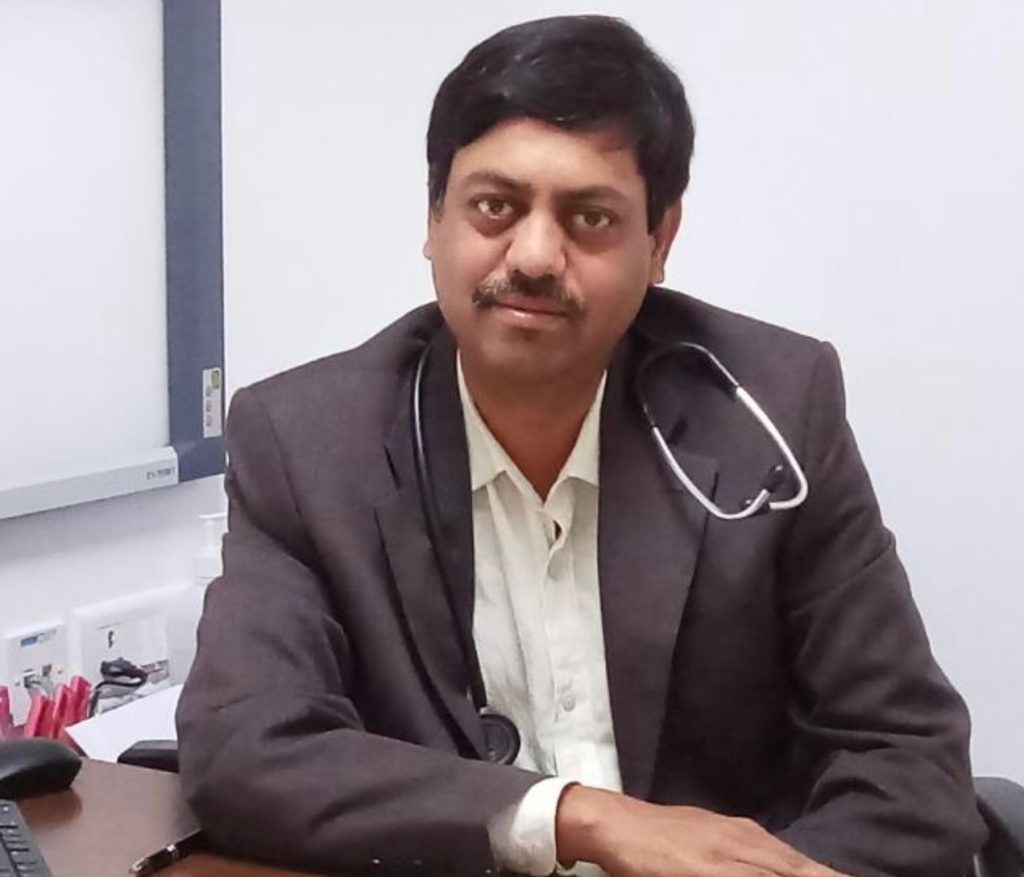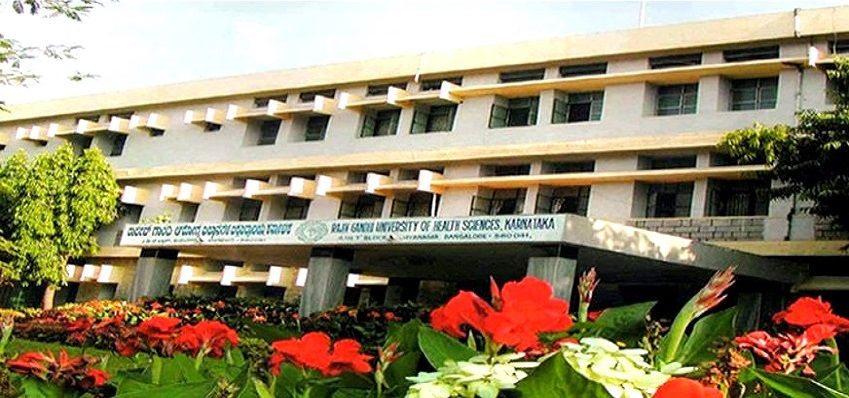BY JYOTHSNA HEGDE
Atlanta, GA, April 17, 2020: “Adversity introduces a man to himself,” quoted the wise Albert Einstein. Fifty-year-old P. K Venkat Raghavan who battled and recovered from Covid-19 discovered the true meaning of this quote, in more ways than one.
Owing to an unavoidable office commitment based in Los Angeles, USA during the first week of March, Bengaluru based Venkat Raghavan decided to step in, well aware of risks of coronavirus sweeping across the world, he says, in a video recording and WhatsApp post that chronicles his experience. He had traveled via Heathrow Airport in London.
Busy at work, on a Thursday of the week, Raghavan developed a fever, which he assumed was a flu. He avoided going to the office and took the flu medicine he had carried. Well equipped with precautionary gear, Raghavan preponed his flight and wore a mask all the way back.
He felt something was amiss as soon as he landed. Upon arrival at the airport, he declared having fever, determined to get tested at the airport. But the infrastructure at the time was not set up for the test and he was sent home.
At home, Raghavan told his wife that he sensed something was wrong and isolated himself upstairs. With a little research from his brother-in-law and a friend, Raghavan decided to get tested at the Rajiv Gandhi Institute of Chest Diseases (RGICD) the same day to prevent the spread of infection.
Raghavan was taken in immediately, given medicines and the test. He returned home and spent the night away from family.
He received a call next day, which confirmed the infection and he was asked to get admitted owing to the high virus load. Whether it was the common bathrooms, or the security and immigration were where he picked up the infection is not clear. He felt relieved about his self-imposed isolation. He requested for an ambulance and was admitted to the isolation facility. The consternation in the neighborhood is a story for another day, he says.
His whole family was tested to ensure no one else was infected and his biggest joy came during the worst of times, in knowing that his family was not affected.
The initial room was small with a creaky bed, but the hospital was still setting up its Covid-19 facility. Food provided at the hospital was too spicy and the food delivery he arranged for did not work either, since the person supposed to deliver it was too scared to enter the hospital! He battled hunger and fever through many unsettling days and nights.
While he was moved to a better room in a couple of days, food, jet-lag, and a lingering uncertainty with no family or friends around to share with, were stressful.
The fever peaked during early mornings when Raghavan sometimes put a wet cloth to control the temperature. He was given medication to reduce fever during daytime. The doctors also put him through antibiotics to prevent secondary infections, as a way to control fever with no available vaccine. A variant of Tamiflu, Starflu, and fever-reducing medicines helped, but fever persisted throughout the day.
Rising sugar levels and diarrhea were physically exhausting as were a few sleepless nights. Venkat consulted doctors about his restless nights. He also sought the guidance of his spiritual guru to brave through his draining days.
After two weeks that must have seemed like eternity, Raghavan had woken up without a fever. Raghavan had recovered and stayed on until the tests came back negative consistently. He was discharged in late March, as the first patient to recover from that facility.
As he breathes easy, literally speaking, Raghavan reflects upon the good, bad and ugly. Having lived through the experience, Raghavan says that despite its ill effects, it is manageable. Stressing on the importance of mental wellbeing, Venkat says seeking help was crucial in his journey to recovery. He credits his wife and spiritual guru who helped him along the way. He has also discovered a newfound appreciation for doctors and staff at government run hospitals.
Nimhans is providing counselling to most Covid-19 patients in Bengaluru hospitals. India in general, and Bengaluru is particular has set up various avenues to supply essentials such as medicine and groceries, to the elderly in particular. I can personally vouch to one such service where volunteers of BBMP (Bruhat Bengaluru Mahanagara Palike), the administrative body responsible for civic amenities and some infrastructural assets of the Greater Bangalore metropolitan area, delivered medicines to my mom after scouting for it all over the city for a whole day!
With no proven cure or vaccine in place, the only certain thing physicians across the globe unanimously opine at this point, ironically, is the uncertainty of the situation.

“Once community spread occurs then it may be difficult to predict. We are also not sure why the disease is probably mild here. Maybe weather, maybe baseline immunity, maybe BCG vaccine, nobody knows,” Bengaluru Cardiologist Dr. Vikranth Veeranna told NRI Pulse.
BCG, or Bacillus Calmette-Guérin, is a vaccine for tuberculosis, administered at birth in countries that have historically suffered from the disease, such as India. Many nations such as the US, Italy and Holland, never had a universal BCG vaccination policy.
Interestingly, a study co-authored by Indian-American cancer surgeon Dr. Ashish Kamat, professor of Urologic Oncology (Surgery) and cancer research at MD Anderson Cancer Center in Houston, Texas found that countries that do not have a BCG vaccination policy saw ten times greater incidence of and mortality from Covid-19, compared with those who do, a forthcoming study from medical researchers in the US and UK, that analyzed data from 178 countries.
Recently, a study from the New York Institute of Technology also noted that countries with a universal vaccination policy, such as Japan and Brazil, seemed to be impacted less by Covid-19 compared with those that did not, such as Italy, US and Netherlands.
While BCG has emerged as a candidate vaccine for Covid-19, and a 4,000-person clinical trial to test its efficacy against the disease is currently underway in Australia, what that means for populations that were inoculated with BCG vaccine in their childhood is not yet clear.
A three-member team at HCG Hospital in Bengaluru have submitted to a proposal through the approach of ‘Cytokine mediated Anti-COVID therapy’, centered on injecting a certain type of cells to strengthen the immune system in the patient’s body. The investigational therapy is a cocktail of Cytokines from TH1 immune cells and rich in interferons, a chemical released by human body cells to kill viruses in a healthy person, but a Covid-19 patient is unable to produce.
The three-member team includes Dr US Vishal Rao, a member of the state government’s high-powered committee on tobacco control, and member of the consultative group to principal scientific advisors for GoI, Dr Jyothsna Rao, an immunologist who has worked with Nobel laureate, Dr Ralph Steinman, and Dr Gururaj Raon, cell and molecular biologist with a PhD from North Carolina University.
The Washington Post recently credited Indian state of Kerala for its response to the pandemic. The article elaborated Kerala’s challenge posed by the virus from heavy inbound traffic of expatriates and foreign tourist arrivals in the state. The “aggressive testing, intense contact tracing, instituting a longer quarantine, building thousands of shelters for migrant workers stranded by the sudden nationwide shutdown and distributing millions of cooked meals to those in need,” the article noted, had collectively contributed to the number of new coronavirus cases in the state in the first week of April dropping to “30 per cent” from the previous week.
According to the evening COVID-19 bulletin released by the state as of April 15, 2020, a total of 279 positive coronavirus cases have been confirmed in Karnataka, including 12 deaths and 75 discharges.
As spring blooms smile and sway in refreshingly clean air, all of us looking through our windows can only wonder if the virus is the invader or human beings are.





